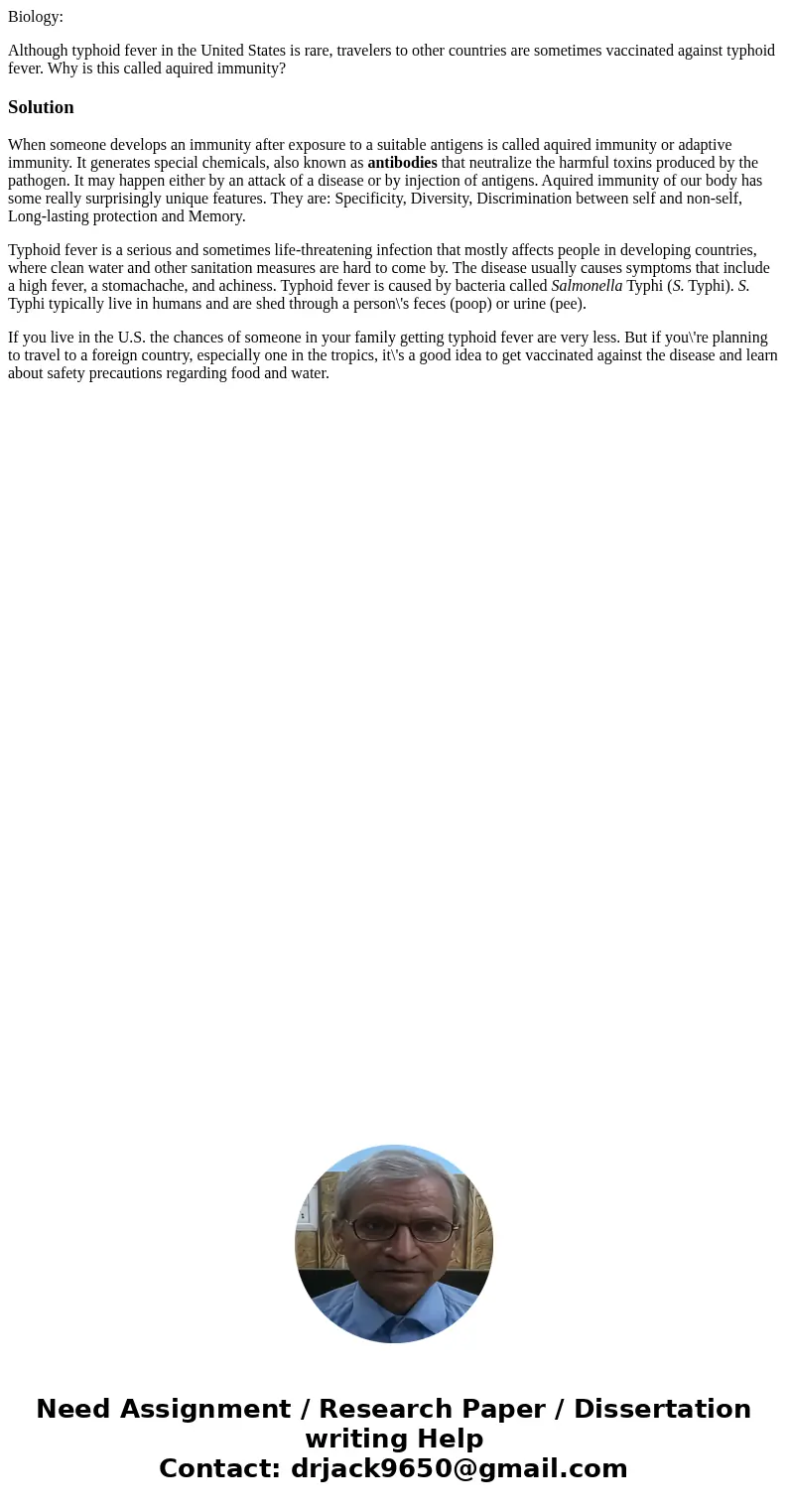Biology Although typhoid fever in the United States is rare
Biology:
Although typhoid fever in the United States is rare, travelers to other countries are sometimes vaccinated against typhoid fever. Why is this called aquired immunity?
Solution
When someone develops an immunity after exposure to a suitable antigens is called aquired immunity or adaptive immunity. It generates special chemicals, also known as antibodies that neutralize the harmful toxins produced by the pathogen. It may happen either by an attack of a disease or by injection of antigens. Aquired immunity of our body has some really surprisingly unique features. They are: Specificity, Diversity, Discrimination between self and non-self, Long-lasting protection and Memory.
Typhoid fever is a serious and sometimes life-threatening infection that mostly affects people in developing countries, where clean water and other sanitation measures are hard to come by. The disease usually causes symptoms that include a high fever, a stomachache, and achiness. Typhoid fever is caused by bacteria called Salmonella Typhi (S. Typhi). S. Typhi typically live in humans and are shed through a person\'s feces (poop) or urine (pee).
If you live in the U.S. the chances of someone in your family getting typhoid fever are very less. But if you\'re planning to travel to a foreign country, especially one in the tropics, it\'s a good idea to get vaccinated against the disease and learn about safety precautions regarding food and water.

 Homework Sourse
Homework Sourse